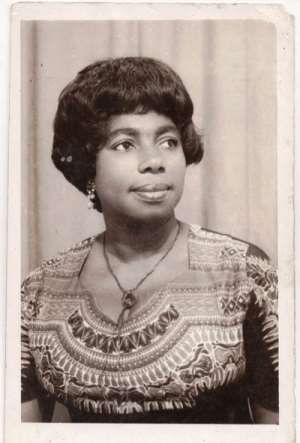
By 2020, more young Ghanaian citizens would be eligible members of the voting-class and shall be duly enlisted into the Republic’s electoral college to exercise their democratic franchise for the very first time. They shall possess the freedom of choice to determine both the next government of the Republic and the next set of representatives at the House of Parliament.
The periodical elections are always an opportunity to reevaluate our ideals regarding the Republic and to mandate the finest representatives to manage the social complexities of our time in accordance with our expectations. If the Republic should leap to the forefront of global affairs, as a modern nation representative of new societal values, a broad and coherent cultural shift must necessarily occur to integrate more women into mainstream politics.
In 2017, the 35 women elected, representing only 12.73% out of the 275 members of parliament, exposes the phenomenon of institutionalised gender inequality across public spheres of politics, employment and scholarship.
Parliament, as a secular democratic institution which mirrors societal values and aspirations, is instrumental to the reversal of traditional and religious influences on contemporary attitudes by projecting gender equality in a patriarchal society. I believe parliament should be 50% female by 2024. For a nation desperate to rise above her challenges, the Republic requires the utmost input of all citizens towards a common vision to reform society.
In 1998, the Women and Juvenile Unit (WAJU) of the Ghana Police was established to purposely deal with crimes against women and children. It, however, took until 2007, almost a decade, for Parliament to enact the Domestic Violence Act (Act 732) which would provide a more credible legal basis for WAJU to crackdown on this crime.
Social issues, such as domestic violence; child labour; sexual abuse; reproductive healthcare; educational disparity and gender pay gaps, which have setback modernisation could only be resolved if a conscious effort is made to further the empowerment of female politicians. Progress can be attained if more women are positioned in parliament to facilitate guarantees of improved socio-political conditions for females.
The plight of the Ghanaian woman and her sacrifice in nation building has been swept beneath the carpet for far too long. The stereotype of a mother whose functions are only limited within the household undermines the reality of the industrious female worker who combines motherhood and entrepreneurship in a male-dominated society.
Nonetheless, recent governments have made some commendable efforts to shift from the patriarchal dominance of high profiled public positions in Ghana's Fourth Republic. In 2007, John Agyekum Kufuor appointed Georgina Wood as the 12th Chief Justice of Ghana – she became the first woman to occupy this position. In 2009, John Evans Atta-Mills appointed Joyce Adeline Bamford Addo as Speaker of the 5th Parliament of Ghana’s 4th Republic.
John Dramani Mahama also appointed Charlotte Osei as the Republic’s first female Chairperson for the Electoral Commission. Most recently, in 2017, Nana Akufo-Addo appointed Sophie Akuffo as the 13th Chief Justice of Ghana. He also appointed Jean Mensa as Ghana’s second successive female Chairperson of the Electoral Commission.




 Meta releases new version of conversational AI across its platforms
Meta releases new version of conversational AI across its platforms
 Cape Town named Africa’s Best Airport 2024 by Skytrax
Cape Town named Africa’s Best Airport 2024 by Skytrax
 Bono East: Four injured after hearse transporting corpse crashes into a truck
Bono East: Four injured after hearse transporting corpse crashes into a truck
 ‘Be courageous, find your voice to defend our democracy’ — Sam Jonah urges journ...
‘Be courageous, find your voice to defend our democracy’ — Sam Jonah urges journ...
 Exodus of doctors, nurses and teachers have worsened because of unserious Akufo-...
Exodus of doctors, nurses and teachers have worsened because of unserious Akufo-...
 2024 election: Avoid insults, cutting down people in search of power – National ...
2024 election: Avoid insults, cutting down people in search of power – National ...
 ‘You passed through the back door but congratulations’ — Atubiga on Prof Jane Na...
‘You passed through the back door but congratulations’ — Atubiga on Prof Jane Na...
 Government’s $21.1 billion added to the stock of public debt has been spent judi...
Government’s $21.1 billion added to the stock of public debt has been spent judi...
 Akufo-Addo will soon relocate Mahama’s Ridge Hospital to Kumasi for recommission...
Akufo-Addo will soon relocate Mahama’s Ridge Hospital to Kumasi for recommission...
 We must not compromise on our defence of national interest; this is the time to ...
We must not compromise on our defence of national interest; this is the time to ...
